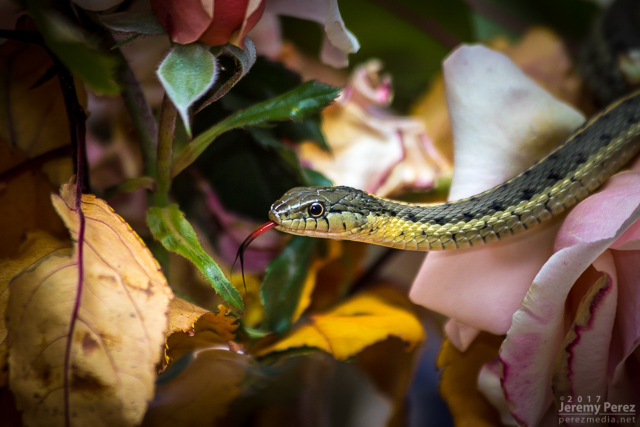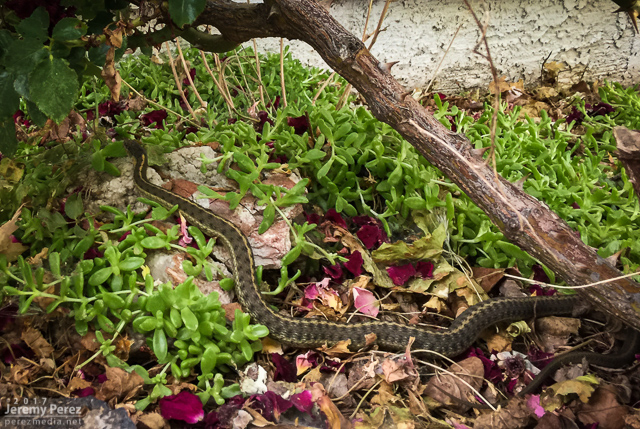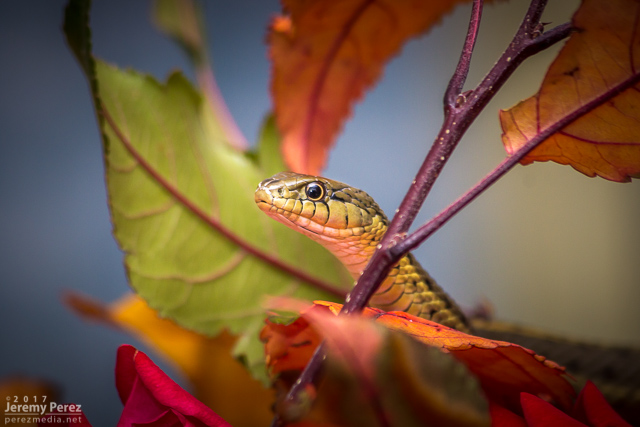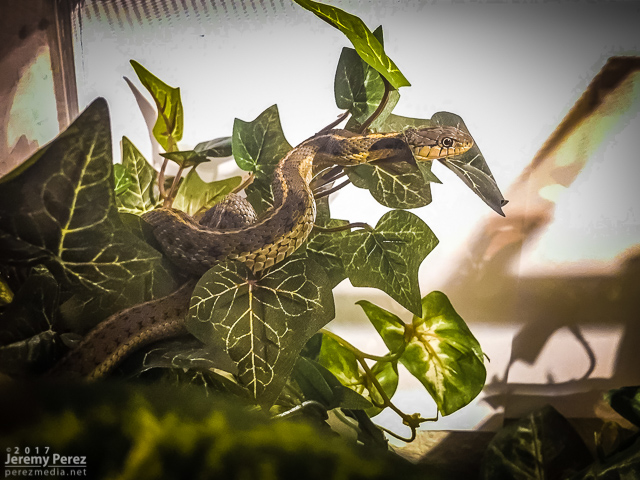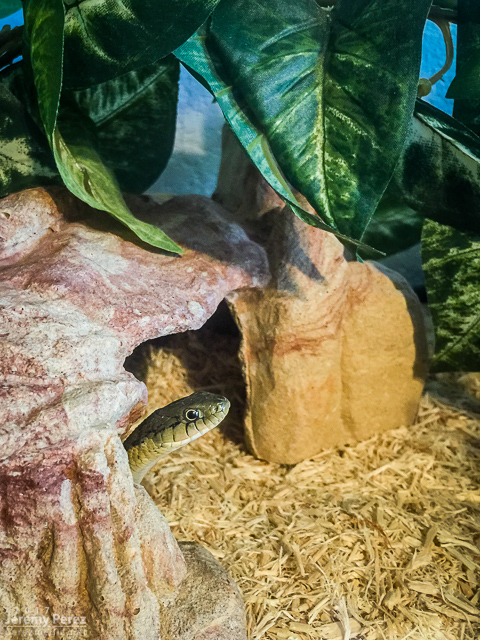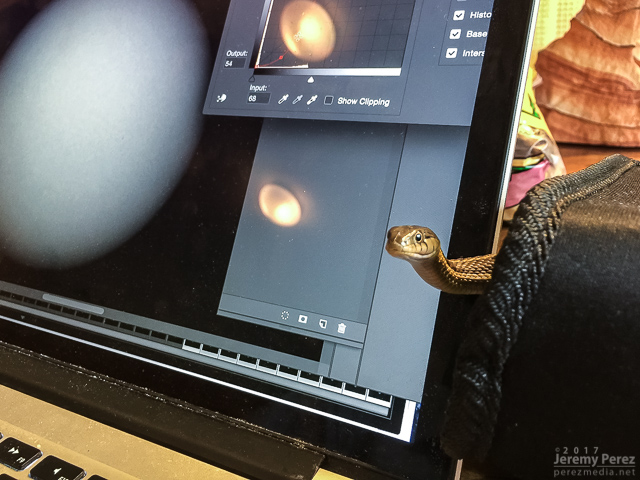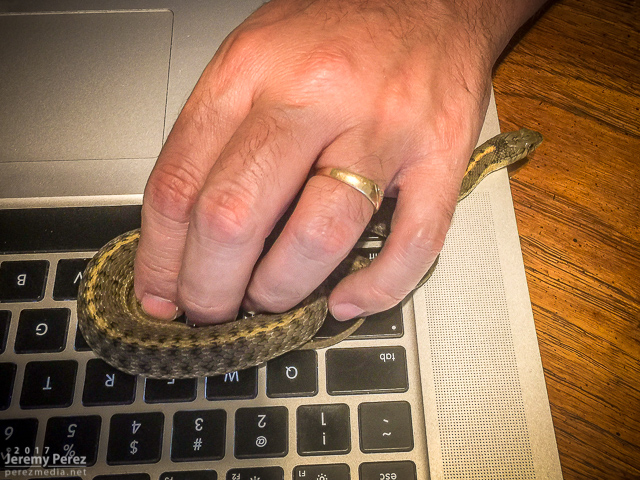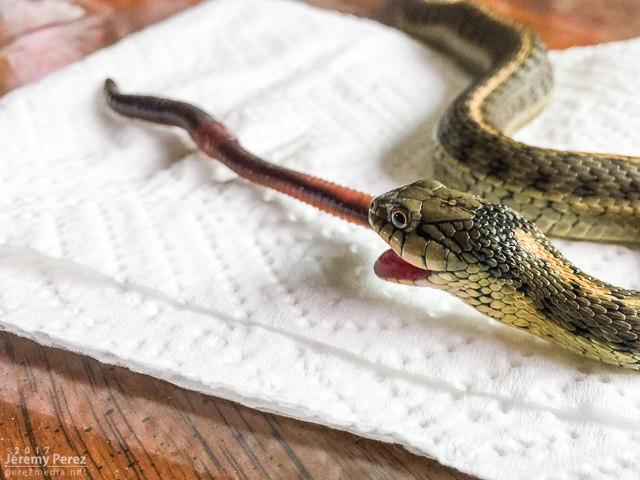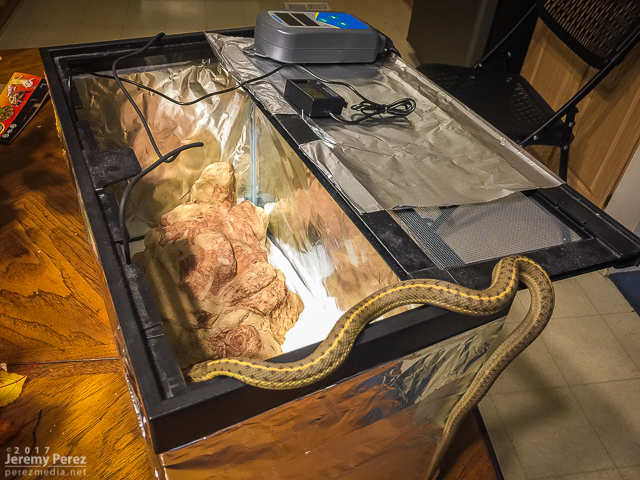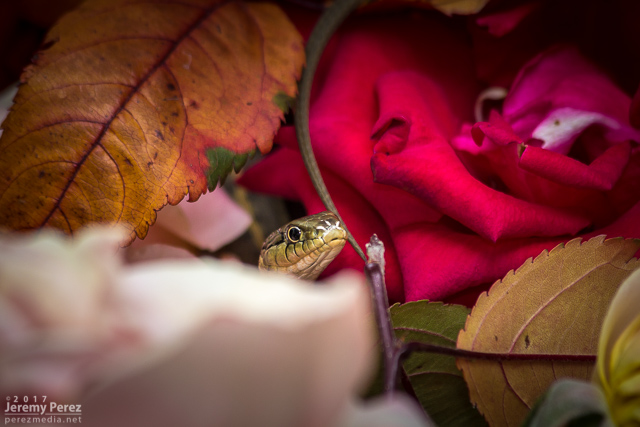Three months ago, we found a garter snake roaming the rose bushes in front of our house. I was really surprised. It’s been a long time since I’ve seen one in the wild, but I can only recall ever seeing them near creeks and other healthy water sources. With all the cats and cars around in town, I figured he was a really lucky critter. He musked when I first picked him up, but never bit, and that was the only time he ever tried to skunk me or anyone else.
Doing a little research after that, I ID’d him as a Wandering Garter Snake — Thamnophis elegans vagrans. He’s about 24 inches long and I’m guessing male because the tail after the cloaca doesn’t quite seem to taper for about an inch or so.
I haven’t had a pet garter since I was a kid and had forgotten how awesome they are. He’s just an exceptionally beautiful snake. Bright eyed with a slight olive green tint up top and pastel bluish green gastrosteges beneath—and glossy like a moving ceramic sculpture. We handle him regularly and he is completely comfortable with that—always on the move, exploring and flicking, never snippy or skittish.
He spent the first few weeks in a small 7-ish gallon tank, but is now set up in a better 20 gallon tank with trimmings to hopefully make it as pleasant for him to live in as it is for us to watch. We’ve had friends through the years that have had milk snakes, boas and kings, but I haven’t yet seen any that compare to watching a garter just constantly moving and grooving, stretching and reaching around their environment.
We have some extra faux-vine leaves and a climbing rock that we bring out and set on the table a couple times a week to let him crawl around and explore different layouts. Sometimes one of us will sit there and play or work on the laptop while he takes an extended tour. That’s where I had been feeding him too—big earthworm on a paper towel in the middle of a temporary table garden. A little vitamin dusting on the worm once every couple weeks. He was ravenous the first couple months and at times would scarf his meal before I even had a chance to put him down.
He shed twice in the first two months, but what I feared has now happened. He stopped eating in September, and has gone into enhanced exploration mode, so I figure he’s hunting for a good brumation spot. I’m afraid he’ll lose too much weight if I try to avoid brumating until it’s too late. So I picked up a thermostat and separate heat mat to set him up in the smaller tank, out in the garage for I guess a couple months to reset the belly clock.
I’m really afraid we could lose him to that process. But definitely don’t want him starving himself at higher metabolism in our indoor temperatures either. I wish I could be confident that after a couple months of not eating and warm temperatures I could be sure he’d figure it out and start chowing down again…but as far as I know, he could get sick and die of malnutrition first. So I guess I’m giving brumation a shot. The cage is covered in foil to keep it dark, thermostat programmed for 50 degrees F, water dish and cover added, and snake in residence. We’re starting with two or three days indoors to start the dark. Then out to the garage for cooler temps. We’re going to miss watching him roam and flounce around for a couple months.
